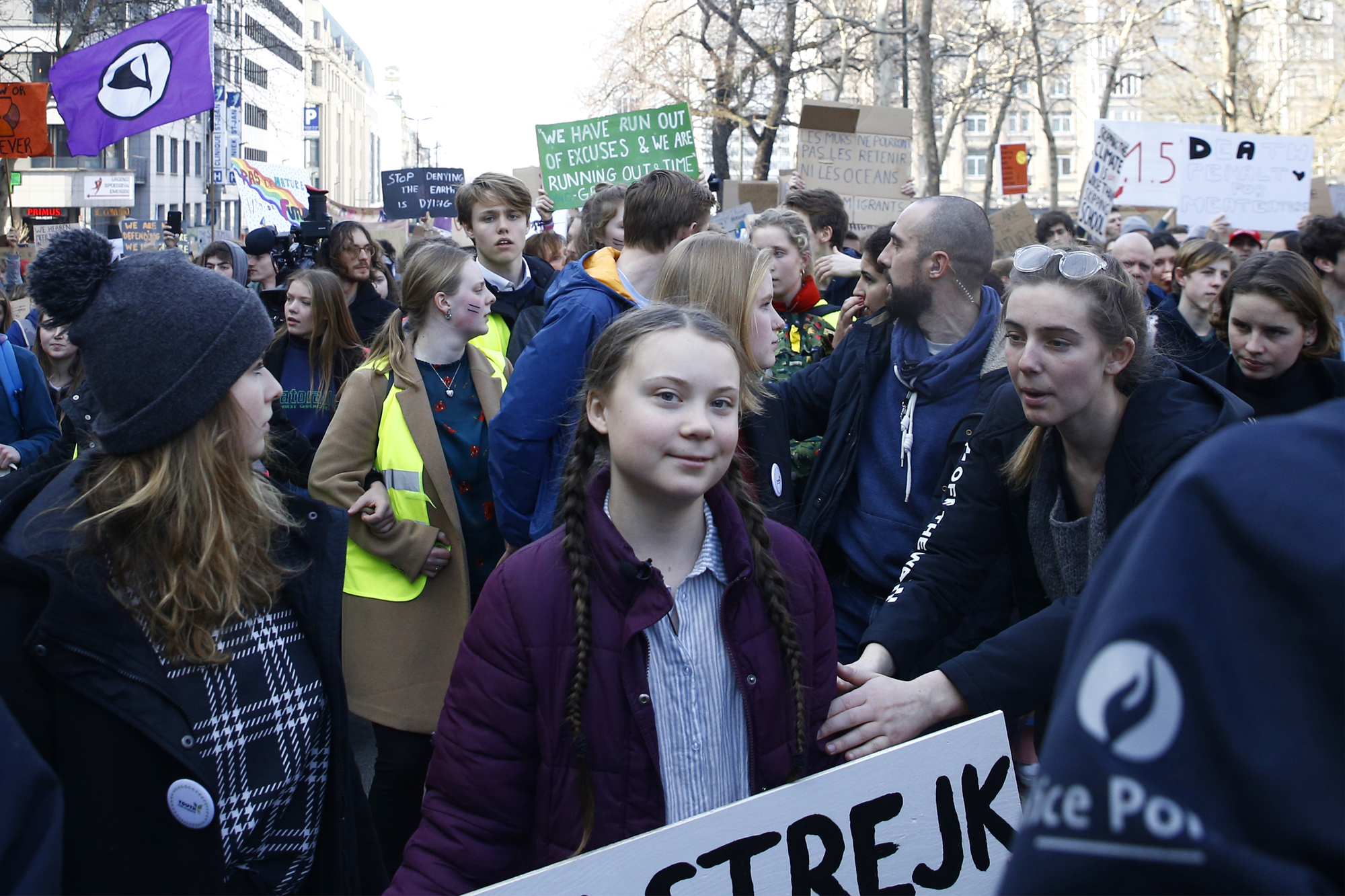

Sea levels are rising—but so are young climate activists.
TIME magazine announced Wednesday that 16-year-old Greta Thunberg is its 2019 Person of the Year. The teenage Swedish activist, who popularized the idea of climate strikes and has spoken to world leaders all over the world, has said publicly that she doesn’t want to be idolized. But whatever her intent, she’s now the articulate, passionate, immovable figurehead of a movement.
In another time, Thunberg’s days skipping school to go on “climate strike” outside the Swedish Parliament might have remained a fringe event. And if world leaders—including the United States’ own President—were moving faster to act on climate change, it’s doubtful a teenage truant would become a global celebrity. But they’re not. As the International Panel on Climate Change has made clear with multiple headline-making reports over the past few years, significant structural changes are needed around the globe to prevent global warming from rising to catastrophic levels. However, action from the world’s biggest polluting countries—China and the United States chief among them—has been slow. Thunberg’s sit-in, a sign of developed nation discontent with the status quo, blossomed into a movement now known as Fridays For Future and inspired climate strikes around the world.

Something else added weight to Thunberg’s conviction: her youth. Unlike many of those world leaders, she and her peers will live with the potentially apocalyptic consequences of runaway climate change. “The politics of climate action are as entrenched and complex as the phenomenon itself, and Thunberg has no magic solution,” TIME writes. “But she has succeeded in creating a global attitudinal shift, transforming millions of vague, middle-of-the-night anxieties into a worldwide movement calling for urgent change.”
On Wednesday Thunberg and Nakabuye Hilda Flavia, a colleague from the Fridays For Future movement, spoke at COP25, the international climate policy conference currently happening in Madrid, Spain.
The event highlighted Thunberg’s rise to fame. “A year and a half ago, I didn’t speak to anyone unless I really had to,” Thunberg said. “But then I found a reason to speak.” For the last year, she said, she’s had plenty to say about the world’s rapidly declining carbon budgets—although her personality and her punchy soundbites get the most media attention by far.
Thunberg is a particularly charismatic leader for the climate cause. She’s unshakeable, young, English-speaking, female—and white. Ahead of the COP25 event, she spoke out in support of other young activists, arguing that we should amplify the voices of Indigenous activists and those from developing countries. Their homes and families will be disproportionately impacted by climate change’s effects, such as extreme weather, mass animal die-offs, and rising seas.
Nakabuye is an example. The 22-year-old founder of Uganda’s Fridays For Future movement told September’s C40 Summit, a meeting of the mayors of the world’s largest cities, that the effects of climate change-related extreme weather—heavy rains and extreme droughts—drove her family to sell off their farm in order to survive. “I can tell you that we are a generation of scared people, but very ambitious ones,” she said. “United, persistent, and very good at action.”
Speaking at COP25, her message was sharp. “I am happy to be here, because I am among the few young people who made it from the Global South,” she said. “I came here to represent millions of African young people who are bearing the brunt of climate crisis.”
Even as the conference itself unfolds, she added, extreme weather events are killing people in Uganda, and all of East Africa is feeling the climate crisis in ways unreported by Western media.
“Voices from the Global South deserve to be heard,” she said. “Animals, forests, fish, and birds from Africa may not count to you, as they do to us, but at least make us count. We are humans who do not deserve to suffer a crisis that we did not create.”
But the cultural changes that have elevated Thunberg and her fellow activists into the spotlight have not granted them universal respect. BuzzFeed has reported on the disproportionate harassment faced by young, female climate activists. For climate deniers, BuzzFeed’s Zahra Hirji writes, “the rise of a new climate movement means there’s now a much more visible—and especially vulnerable—target: kids.”
Thunberg’s huge platform, as well as her diagnosis of Asperger’s, have made her a target: as TIME reported, she often needs police protection. But people of color and Indigenous people are disproportionately threatened and excluded from the mainstream climate movement as well, as other publications have documented. In a world where Greenland is melting seven times faster than it was in the 1990s, perhaps the best thing we can do is listen to young voices—as many of them as possible.
